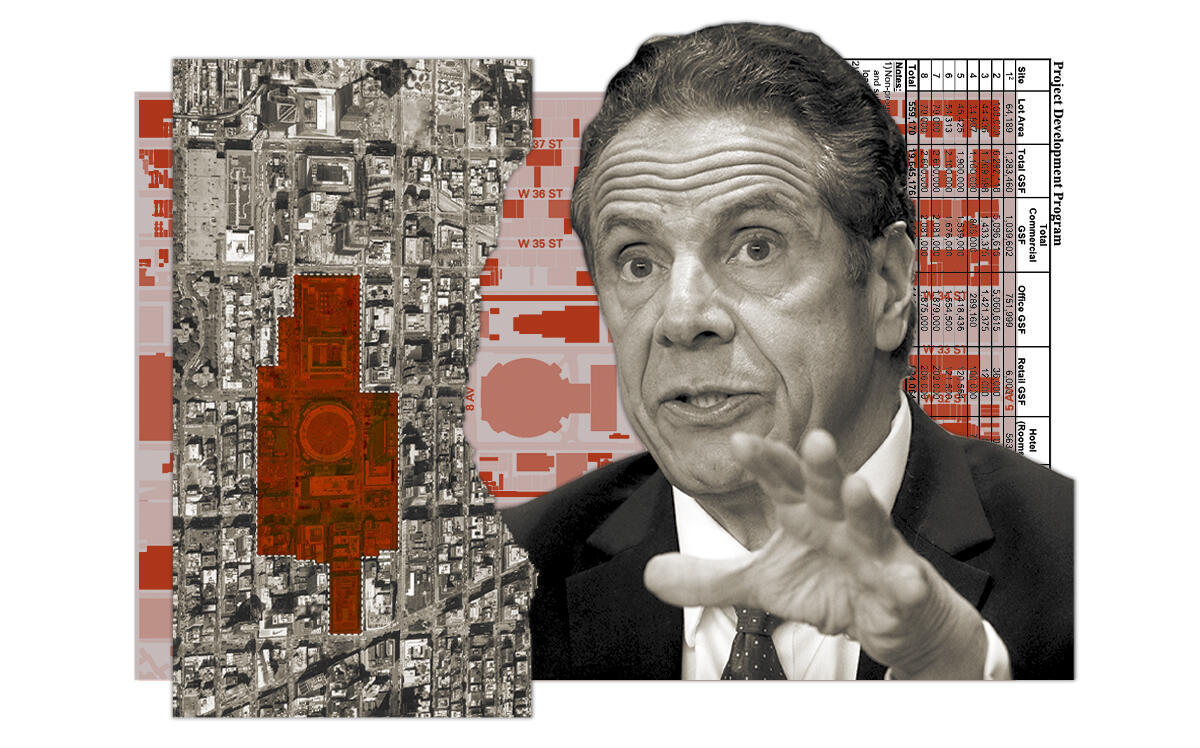Trending
Towers planned around Penn Station face backlash
Lawmakers aim to table funding as developers fill Cuomo’s campaign coffers

Razing Midtown buildings to make way for an expanded Penn Station and nearly a dozen new towers isn’t sitting well with some community members and elected officials.
The plan, announced by Gov. Andrew Cuomo in January, calls for 20 million square feet of new office, retail, hotel and residential space surrounding the transit hub and nearby. But the details remain fuzzy.
More than 50 properties would be affected, and eminent domain might be necessary. Revenue from the projects would help pay for the construction of eight tracks just south of Penn Station, through payments in lieu of taxes and other mechanisms.
The undertaking is being pursued through a general project plan, which allows the state to get around the city’s land use process.
For these and other reasons, Manhattan Community Boards 4 and 5, along with state legislators, have asked the state’s economic development arm to pump the brakes.
“We are relegated to the sidelines as commentators on the future of our districts, and that’s frankly unacceptable,” said Sen. Brad Hoylman, who represents the area and is running for Manhattan borough president.
In a joint statement, the community boards called the plan “a real estate development packaged as a transportation project” with scarce details on what the overhaul of Penn Station itself would entail.
The Cuomo administration appears to be listening. In response to community concerns, the Empire State Development Corp. postponed a hearing on the project slated for this week until May.
“ESD has held 50 meetings with community leaders and stakeholders since the project was announced, and will continue its extensive outreach,” an agency spokesperson said in a statement. “Feedback from those meetings is directly informing the plan as it moves forward.”
Still, the administration appears keen to advance the project, dubbed Empire Station Complex. The governor included a $1.3 billion commitment to it in his proposed budget. On Friday, state legislators, along with Reps. Carolyn Maloney and Jerrold Nadler, said the project should not be “railroaded through in the budget or rushed into a hearing.” Hoylman said critics face an uphill battle getting the funding removed from the budget.
The only property owner that the governor has publicly acknowledged discussing the project with is Vornado Realty Trust, which controls a significant chunk of the proposed development sites. One is home to the Hotel Pennsylvania, which the company has long considered replacing with an office or condo tower. The firm declined to comment.
Some property property owners feel blindsided by the state’s plans.
“When I saw the plan I said, ‘How can I stop this? How can I stop the real estate moguls?’ I feel I am a cockroach being stepped on,” Omri Semadar, who sits on the condo board of 408 Eighth Avenue, which is within one of the project sites, told the New York Post.
The revitalization of Penn Station would ultimately boost the value of surrounding real estate, much of which is owned by some of the governor’s largest industry donors, including Vornado, Related Companies, SL Green Realty, Tishman Speyer and Brookfield Property Partners.
In the days immediately before and after the governor’s unveiling of the plans for Penn Station and the surrounding neighborhood, Brookfield, Extell, Related, Tishman Speyer, SL Green and Silverstein Properties executives and affiliated entities contributed at least $112,200 to the governor’s re-election campaign, according to state records.
Back in 2016, when the governor announced new plans for the redevelopment of Penn Station and the Farley Post Office directly across Eighth Avenue, prominent real estate firms including Extell Development, Brookfield, Tishman Speyer, Silverstein, Vornado and Related showed early interest. At the time, companies could bid on either or both of the projects. The state ultimately tapped Vornado and Related to redevelop Farley, which opened late last year as Moynihan Train Hall.




